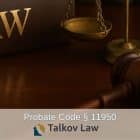Partition actions aren’t just about forcing a sale—they’re your chance to get reimbursed for every dollar you put into the property.
When a partition action is filed to sell co-owned property, co-owners are entitled to reimbursement for any amounts they overpaid for the property’s expenses or improvements during their co-ownership period. However, determining which reimbursement method applies and calculating the proper amounts can quickly become a legal minefield without experienced guidance from a partition attorney.
What Reimbursements Can Co-owners Request During a Partition Accounting and Offsets?
In a partition action, the general principle regarding accounting and offsets is that:
Every partition action includes a final accounting according to the principles of equity for both charges and credits upon each cotenant’s interest. Credits include expenditures in excess of the cotenant’s fractional share for necessary repairs, improvements that enhance the value of the property, taxes, payments of principal and interest on mortgages, and other liens, insurance for the common benefit, and protection and preservation of title.
Wallace v. Daley (1990) 220 Cal.App. 3d 1028, 1035–36 (citing California Code of Civil Procedure § 872.140)
As explained by a court in California: “The right of the cotenant making the payment in excess of his proportion to recover payment from the other cotenant his share thereof arises at the date when any such expenditure is made.”[1]Willmon v. Koyer (1914) 168 Cal. 369, 372–73. Generally, “[w]hen a cotenant makes advances from his own pocket to preserve the common estate, his investment in the property increases by the entire amount advanced. Upon sale of the estate he is entitled to be reimbursed his entire advancement before the balance is equally divided.”[2]Southern Adjustment Bureau, Inc. v. Nelson (1964) 230 Cal. App. 2d 539, 541.
During a partition action, a co-owner may seek reimbursement for taxes and improvements. “[W]hen a cotenant in real property makes out-of-pocket advances to pay property taxes, insurance, and trust deed payments to preserve the common estate, such cotenant’s investment in the property increases by the entire amount advanced. On the sale of the property, that cotenant is entitled to be reimbursed for his or her entire advancement before the balance of the sale proceeds is equally divided.”[3]16 Cal. Jur. 3d Cotenancy and Joint Ownership § 60.
Offsets for Tax Payments
A California court has held that “a cotenant who pays taxes, trust deed payments or other charges against the property or expends money for the preservation of the property or who, with the assent of his cotenant, makes improvements to the property is entitled to contribution from the cotenant, and on partition by sale is entitled to reimbursement for those expenditures before division of the proceeds among the property owners.”[4]Milian v. De Leon (1986) 181 Cal.App.3d 1185, 1194.
Offsets for Improvements
During a partition action, “the cotenant who has made the improvement is entitled to the resulting enhancement in value.”[5]Miller & Starr, Right of partition—Compensation for improvements, 4 Cal. Real Est. (4th ed.) § 11:19 (citing Wallace v. Daley (1990) 220 Cal.App.3d 1028, 1035–38.
“Even though one cotenant does not consent to making of improvement, since action for partition is essentially equitable in nature, court of equity is required to take into account improvements which another cotenant at his own cost in good faith placed on property which enhanced its value and to award such cost to him. Generally, “the cotenant who has improved is entitled to the resulting enhancement in value.”[6]Miller & Starr, Right of partition—Compensation for improvements, 4 Cal. Real Est. (4th ed.) § 11:19 (citing Wallace v. Daley (1990) 220 Cal.App.3d 1028, 1035–38.
How Are Reimbursements Distributed in a Partition Action?
The co-owner who overpaid can either:
- Receive full reimbursement for the total amount advanced before the remaining sale proceeds are divided between all co-owners.
- Have their reimbursement amounts deducted from the other co-owner’s share of the sale proceeds.
Examples of the Two Ways to Account for Partition Offsets
Although there are two ways to account for offsets, they both reach the same result as long as the method of properly applied.
Example 1: Chris and Jeremy co-own a rental property. Chris paid $10,000 for a new roof out of his own pocket. During the partition by sale, the property is sold for $400,000:
- Option 1: Chris receives the full $10,000 reimbursement first, then the remaining $390,000 is split between Chris and Jeremy based on their ownership shares.
- Option 2: The $10,000 Chris paid is deducted from Jeremy’s share of the sale proceeds. So if they split 50/50, Jeremy would get $195,000 (half of $390,000) while Chris would get $205,000 (his $195,000 half plus the $10,000 reimbursement).
Example 2: Chris and Jeremy inherit a house together. Jeremy pays the $5,000 property tax bill for the year. During the partition by sale, they sell the house for $300,000:
- Option 1: Jeremy gets fully reimbursed the $5,000 first, then the $295,000 balance is split per their ownership interests.
- Option 2: The $5,000 Jeremy paid is deducted from Chris’s share of the proceeds before splitting the remaining amount.
As Miller and Starr, the leading treatise on California real estate, explains: “On a sale of the property pursuant to an action for partition, the cotenant is entitled to reimbursement for the entire
amount advanced before the balance of the sales proceeds is divided between the cotenants.
Alternatively, the other cotenant’s share of the expenses may be deducted from his or her
share of the sales proceeds.”[7]Right to contribution; lien for repayment, 4 Cal. Real Est. (4th ed.)
§ 11:10.
Retaining a partition attorney can help strategize how to get the most equitable outcome. For example, when a partition action is filed and a party defaults, a partition attorney may inform you that generally, a co-owner will request a “ratable contribution from his defaulting cotenant,” not from the common pot of equity.[8]Marsh v. Edelstein (1970) 9 Cal.App.3d 132, 141.
Talkov Law’s Partition Attorneys Can Help
When seeking reimbursement for improvements or overpayments during the sale of co-owned property, you will only benefit from retaining an experienced partition attorney. With twelve full-time partition lawyers, Talkov Law is the #1 partition law firm in California and has handled over 500 partition actions throughout California. Contact California’s premier partition action law firm by reaching out to Talkov Law.
For a free consultation, call (844) 4-TALKOV or contact us online today.
References
| ↑1 | Willmon v. Koyer (1914) 168 Cal. 369, 372–73. |
|---|---|
| ↑2 | Southern Adjustment Bureau, Inc. v. Nelson (1964) 230 Cal. App. 2d 539, 541. |
| ↑3 | 16 Cal. Jur. 3d Cotenancy and Joint Ownership § 60. |
| ↑4 | Milian v. De Leon (1986) 181 Cal.App.3d 1185, 1194. |
| ↑5, ↑6 | Miller & Starr, Right of partition—Compensation for improvements, 4 Cal. Real Est. (4th ed.) § 11:19 (citing Wallace v. Daley (1990) 220 Cal.App.3d 1028, 1035–38. |
| ↑7 | Right to contribution; lien for repayment, 4 Cal. Real Est. (4th ed.) § 11:10. |
| ↑8 | Marsh v. Edelstein (1970) 9 Cal.App.3d 132, 141. |







































































































































